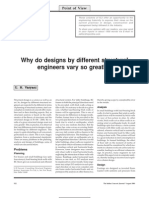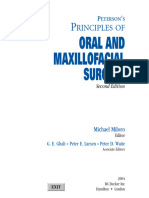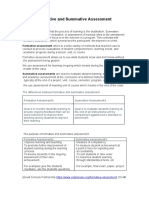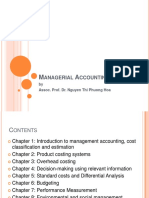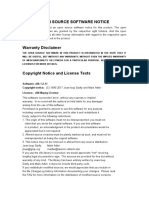UNIT 1 : COMMUNICATION SKILL
The word ‘Communication’ comes from the Latin word commūnicāre, meaning ‘to share’. So
communication is the ‘sharing’ of information between two or more individuals or within a group to reach a
common understanding.
OBJETIVES OF EFFECTIVE COMMUNICATION
Sending, receiving & understanding the message or information.
Development of interpersonal skills
To express effectively with maximum efficiency.
ELEMENTS OF COMMUNICATION
Sender: the person beginning the communication.
Message: the information that the sender wants to convey.
Channel: the means by which the information is sent. Receiver: the person to whom the message is sent.
Feedback: the receiver’s acknowledgement and response to the message.
TYPES OF COMMUNICATION
Verbal form Non-Verbal form Visual form Written form
VERBAL COMMNICATION
Verbal communication is the sharing of information by using words. It is what most people use as a method
of communication. It takes place in the form of discussions, speeches and conversations.
TYPES –
Oral or Spoken Communication
Written Communication
NON-VERBAL COMMNICATION
Non-verbal communication is the expression or exchange of information or messages without using any
spoken or written word.
TYPES –
Gestures Expressions Body Language Eye Contact Facial Expressions Touch
VISUAL COMMNICATION
Visual communication proves to be effective since it involves interchanging messages only through images
or pictures.
Communication Cycle and Importance of Feedback
Feedback is an important part of the communication cycle. For effective communication, it is important that
the sender receives an acknowledgement from the receiver about getting the message across. A good
feedback is always
• specific ,Timely • helpful • kind
Types of Feedback
Positive Feedback Negative Feedback No Feedback
Importance of Feedback
It validates effective listening: The person providing the feedback knows they have been understood
(or received) and that their feedback provides some value.
It motivates: Feedback can motivate people to build better work relationships and continue the good
work that is being appreciated.
• It boosts learning: Feedback is important to remain focused on goals, plan better and develop
improved products and services.
� • It improves performance: Feedback can help to form better decisions to improve and increase
performance.
7C’ of COMMUNICATION
For effective communication, one should follow basic principles, known as 7C’s of communication
Clear – be clear with message,keep it simple
Concise- Be precise and to the point
Concrete- be definite & specific
Correct – use accurate facts & figures
Coherent – stick to main topic of message
Complete – Convey all the facts related to topic
Courtesy – consider feelings and viewpoints of receiver
FACTORS AFFECTING EFFECTING COMMUNICATION
Cultural Barriers - Cultural barriers is when people of different cultures are unable to understand
each other’s customs, resulting in inconveniences and difficulties.
Physical and Environmental – Noise, Visual perception
Linguistic Barriers– The inability to communicate using a language is known as language barrier to
communication.
Interpersonal Barriers–It occur when the sender’s message is received differently from how it was
intended. It is also very difficult to communicate with someone who is not willing to talk or express
their feelings and views.
Ways to Overcome Barriers to Effective Communication
Use simple language
Do not form assumptions on culture, religion or geography
Be respectful of other’s opinions
Take help of a translator to overcome differences in language
Use visuals


































































